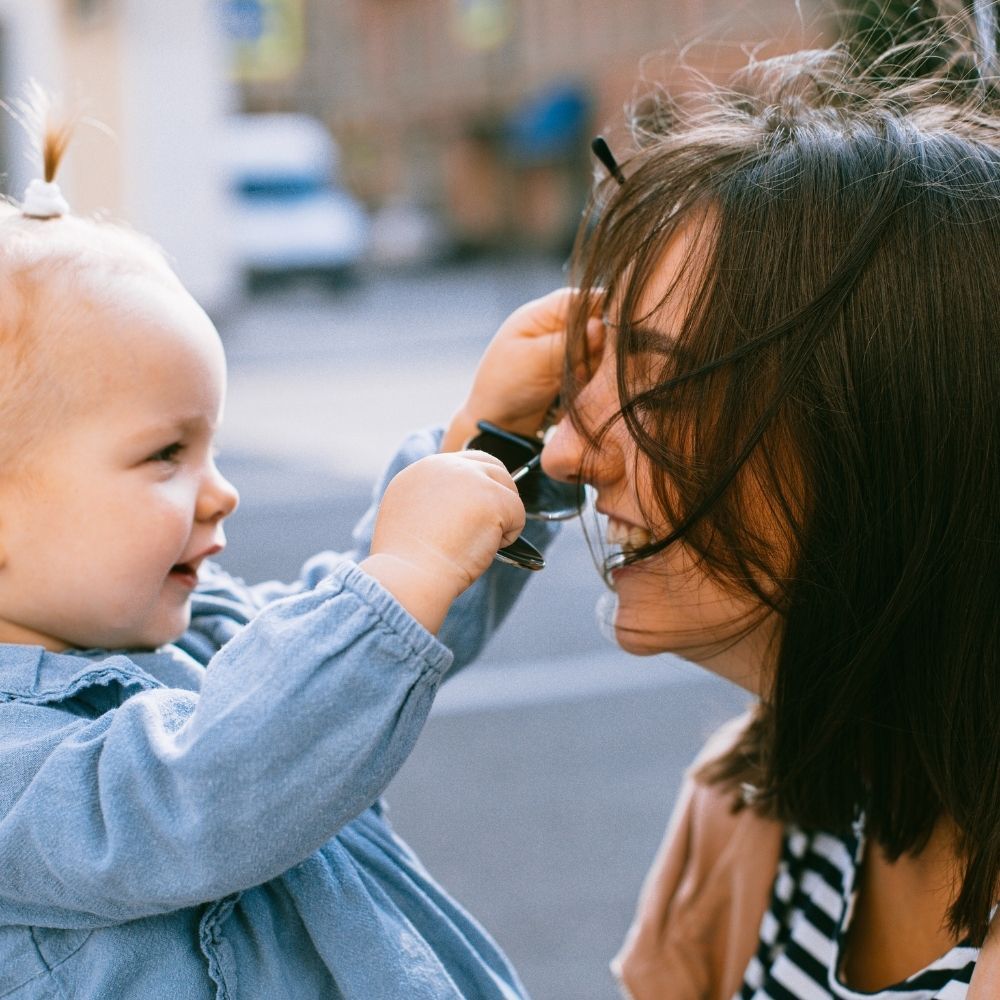| Contents: |
How to talk to your child about sex?
I remember the adults around me having no problem talking about death, but sex was out of the question. For me, there shouldn’t be any shame in talking frankly about sex 🤷♀️. Of course, it may be uncomfortable, but you can’t reasonably ignore your child’s questions about this major issue.
The author of the book “Dare to talk about it! Know how to talk to your children about love and sex”, Maëlle Challan Belval, explains that a curious child who asks questions isn’t shameless. It’s us as adults who put so much weight on a trivial question 😫.
1. Take age into account
Of course, the first thing to do is to take age into account. You won’t talk about sex to a 5-year-old as you would to a 10-year-old. To do this, ask questions to find out what they know and to get an indication of what they understand. You should give the right information depending on their question. Usually, other questions arise after the first answer. The important thing is to use simple words, especially if they’re very young 🤗.

"Hey mommy, how are babies made?” The question!
👉 Psychosexual development takes place between the ages of 3 and 5, and this is the age when children wonder where babies come from!
>>> Discover the tips to follow if your child hits you
2. Be honest
I know there’s no such thing as the perfect parent, but I would have liked mine to be honest with me rather than telling me some far-fetched story. To the question “how are babies made?”, I would have liked a simple and clear answer like: “a man and a woman have to make love”. Of course, I probably would’ve had other questions like “what’s making love?”, but at least I would’ve known the truth 😊.
👉 Sometimes we don’t have the answer to the question. Yes, children think about things we don’t consider! If that’s the case, you also have to tell them “I don’t know, I’ll do some research and when I’ve found out, I’ll tell you about it, ok?”.
3. Use the “right” words
Another thing I would have liked to have been taught was the vocabulary of the genitals. I listened to the podcast “Between Our Lips” with the comic book writer Matou, who made me realize how important this is. She explained that she’d taught her daughter the word “vulva” and “clitoris” in particular, and I think this is an excellent idea. Children can learn about all the parts of their body, without any taboo.
⚠️ It’s also a way to raise awareness and explain that certain body parts should be touched by others. By the way, there are books to talk about sexual violence and incest with your child, to set limits.
4. Remain open to discussion
As I said, we can’t say everything and there are concepts that children don’t understand. However, we can encourage them to talk about it and ask questions if they feel the need. To do this, you need to remain open and not become defensive. The more the child feels negative emotions from you, the more they’ll be scared to ask their questions. As they grow up, they’ll know that there’s a relationship of trust, and they’ll be more comfortable to communicate, especially during adolescence.
>>> Find out how to reduce stress in children
🤐 What if your child doesn’t ask questions? I think it’s important to educate your child about this major part of life. Avoid tackling it head-on and bringing it up out of nowhere, but you can be attentive to everyday situations. If you notice certain reactions depending on the context, we can question them to find out what they know, for example. |
Why to talk to your child about sex?
I imagine that there may be some parents who are very resistant to the idea of talking to their child about sex, but it’s so vital that you do! It’s the best way to communicate healthy values, to learn about consent and to get to know their body. These are the foundations of a positive education! As they grow up, they’ll feel in a safe space to discover their sexual and gender identity, but also their intimate and loving relationships with others.
👉 Need to understand more about sexual and gender identity? I’ll explain all of this in my article about the meaning of LGBTQIA+ and the article on non-binarity. The more informed you are, the more you cultivate your open-mindedness, whether it’s for yourself or your child.
A child who is well-informed on the subject of sex will have a positive body image 🥰. It will enable them to impose their own limits about body image on others. Answering their questions also allows you to avoid relying on false beliefs and hearsay at school. As in all human relationships, communication is the key to a fulfilling life, and this also applies to your children!
Editor’s note: not always an easy exercise!It’s very important to talk to your children about sex and not create taboos or embarrassment around this subject. However, it’s not always easy, some questions can leave you speechless, especially when you’re tired or when it’s not the right time and your mind is elsewhere! If this subject is delicate for you, if you weren’t told about it during your childhood, or not properly, and if you’d like to discuss it in the right way with your child, don’t hesitate to make an appointment with a psychologist for advice. 🤗 Understanding yourself, accepting yourself, being happy... It’s here and now! #BornToBeMe |
Be sure to check these articles out too;












Did you like this article?
Want to know more 🤔 ?
Write directly to the authorKatieM. !
Ask Katie a question
Want to share your thoughts? Leave a comment